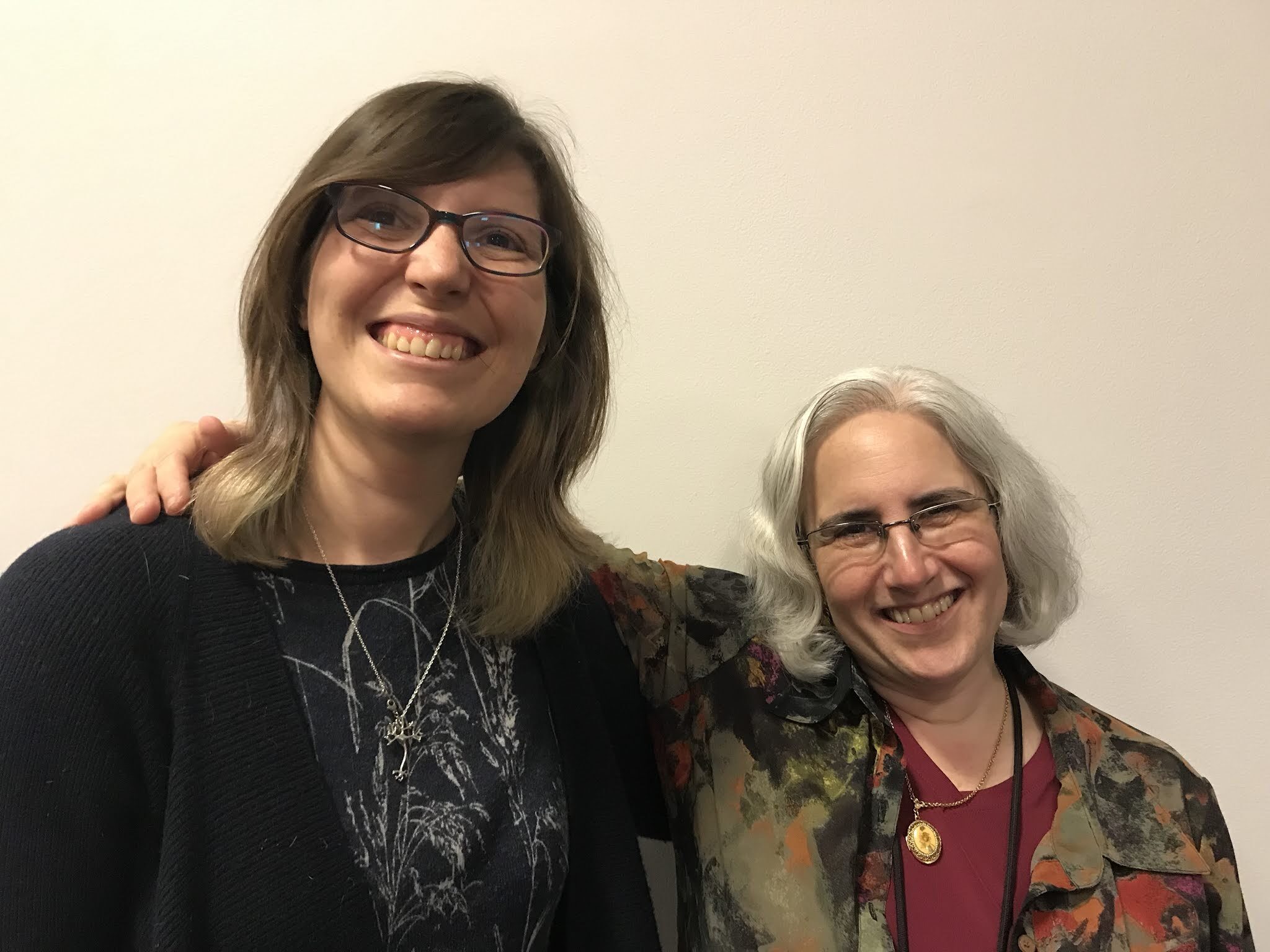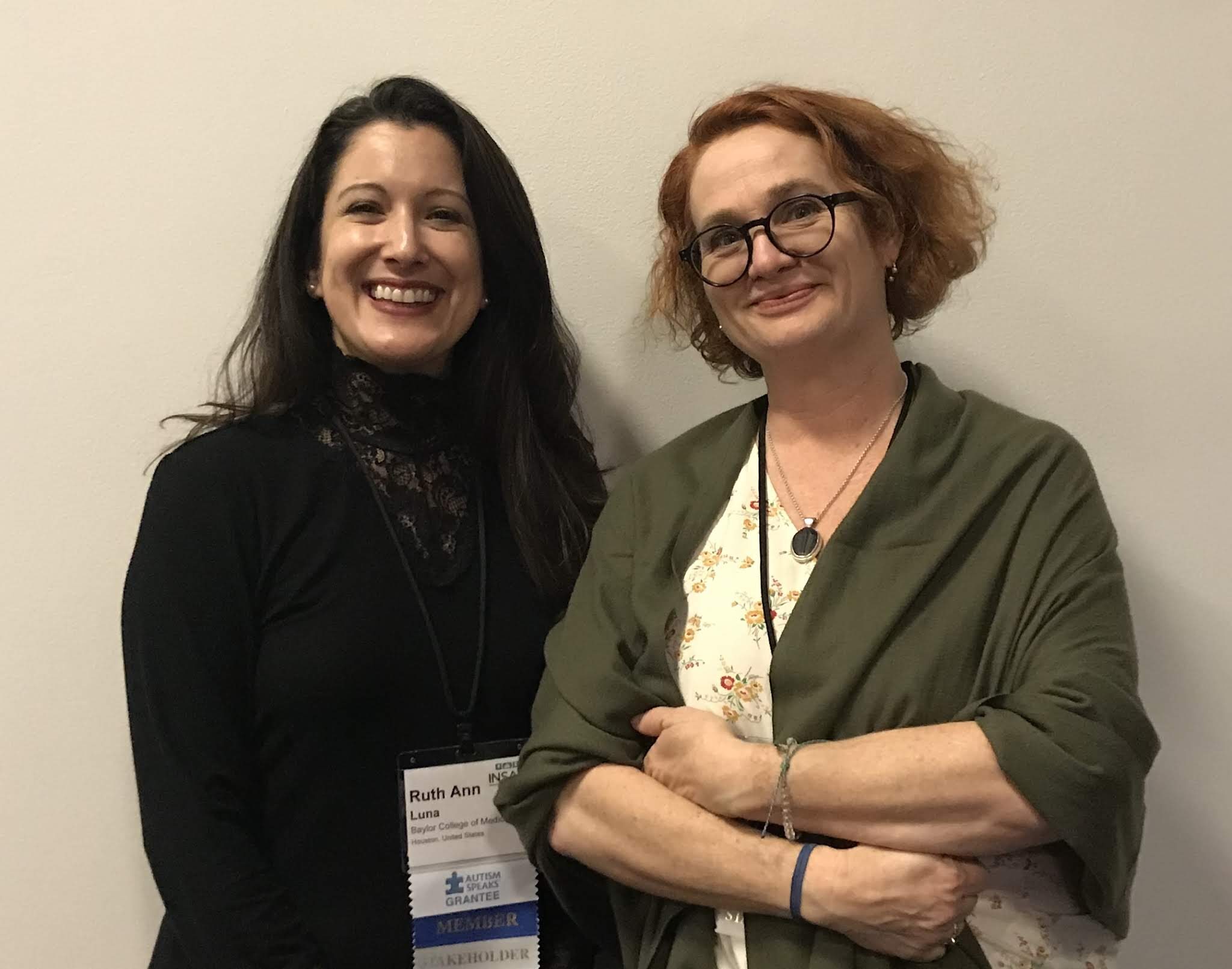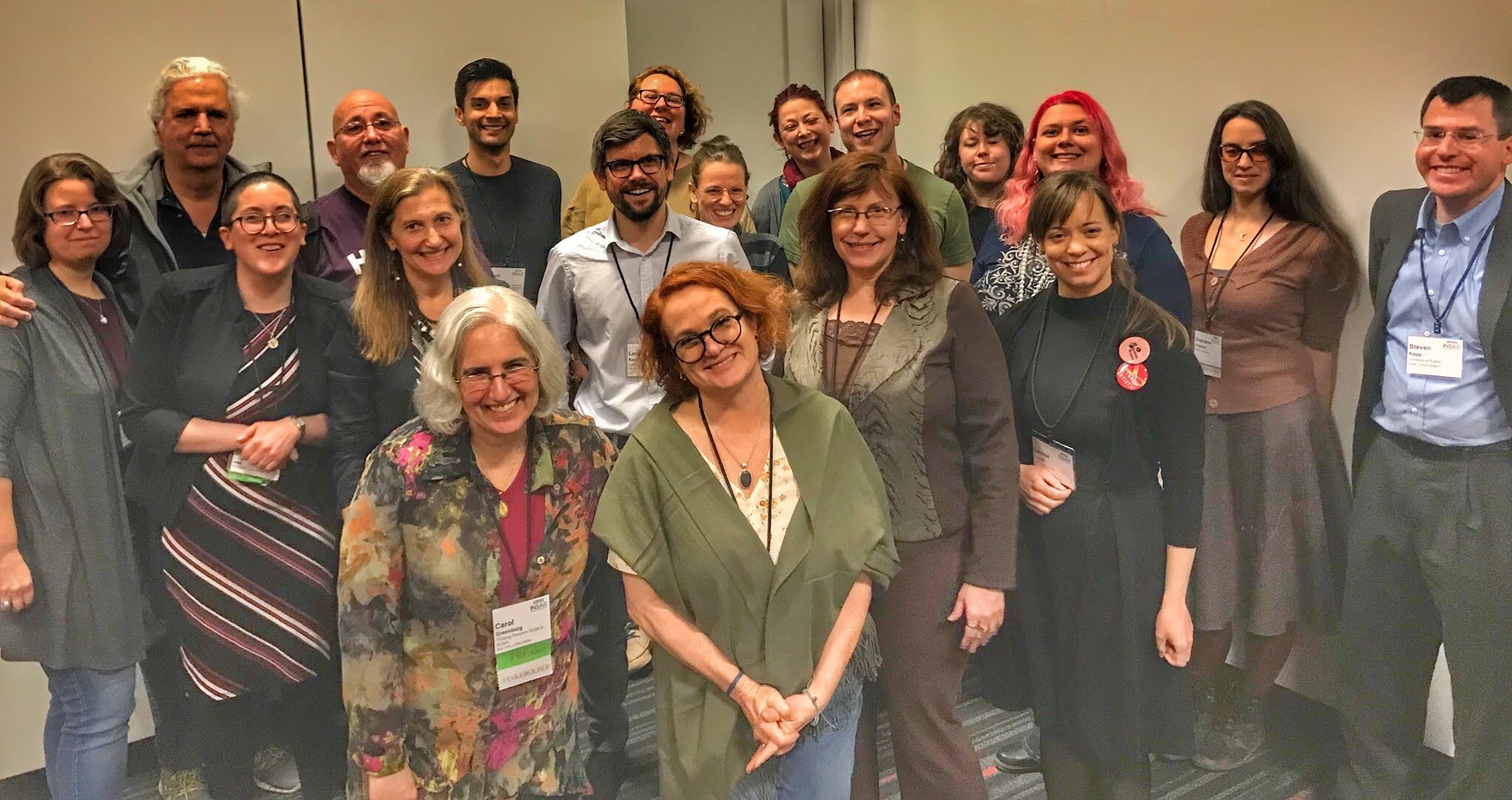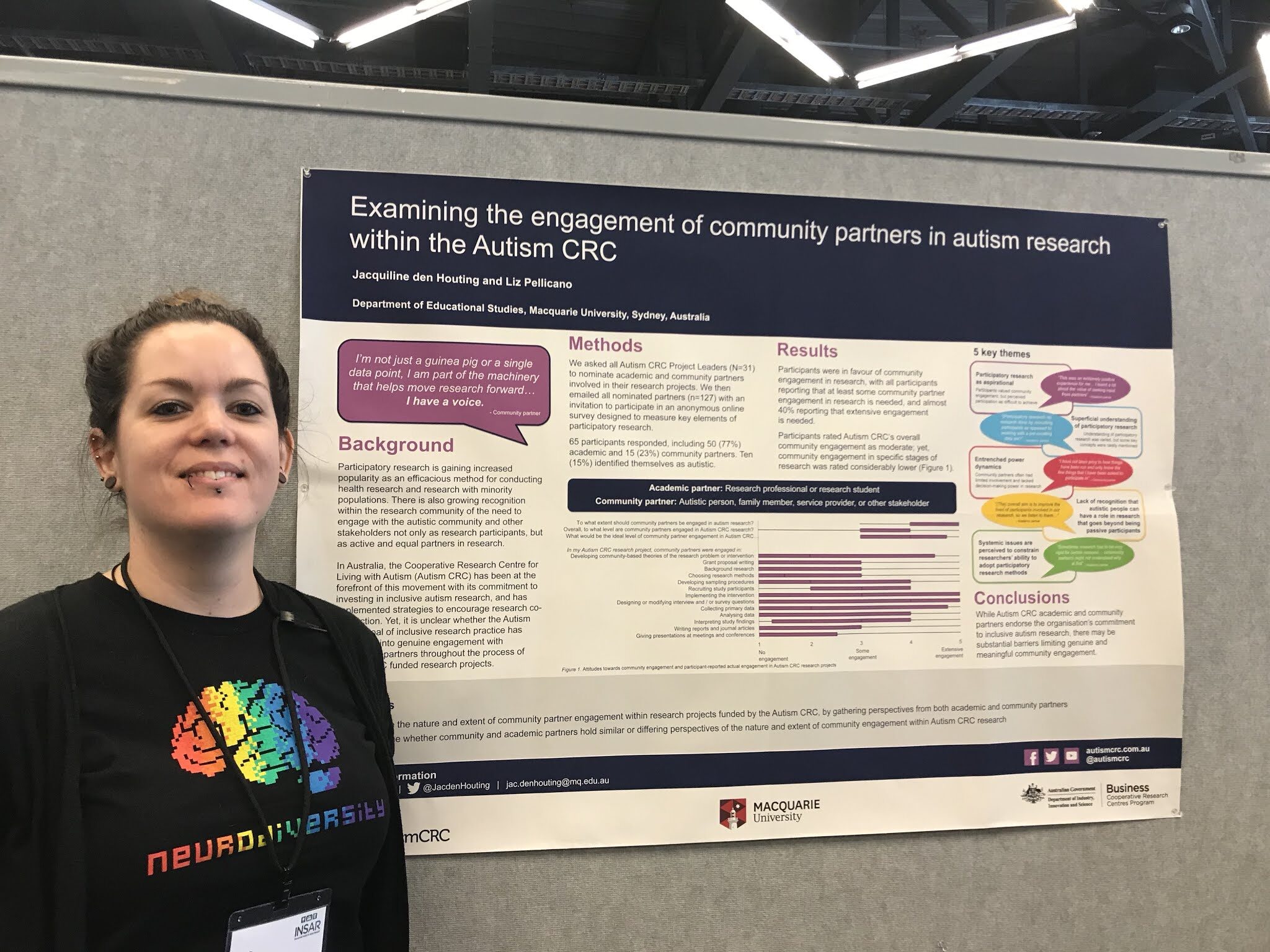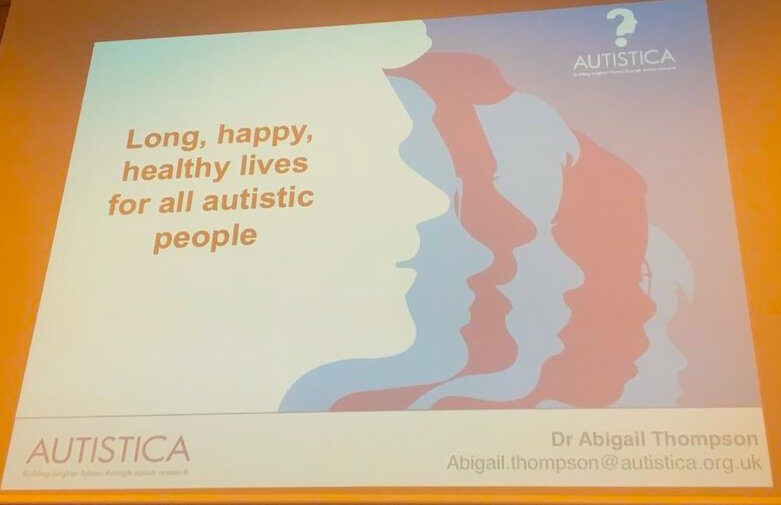Ehlers-Dahlos syndromes are disorders that affect connective tissues. They are both under-researched, and common co-occurring conditions in autistic people.
Tag: INSAR
Dr. Rachel Moseley and Carol Greenburg [image: Photos of two smiling white women wearing glasses posing together. Left, Rachel Moseley has shoulder-length light brown hair. Right, Carol Greenburg’s hair is in a platinum bob.] Content note: This interview discusses self-injury and suicidal behavior. Oftentimes the most rewarding findings at INSAR, the annual meeting for the International Society for Autism Research, emerge during the pre-conference sessions. We went to the 2019 pre-conference on autism and mental health and were impressed by Dr. Rachel Moseley’s presentation on self-injury in autistic people without intellectual disability—and are grateful that Dr. Moseley was able to make time to talk with TPGA editors Carol Greenburg and Shannon Rosa about her research. Shannon Rosa: Dr. Moseley, can you first tell us a little bit about yourself, and your background and affiliations? Dr. Moseley: I’m a researcher at Bournemouth University. I did all my studying and my PhD…
Dr. Ruth Ann Luna and Shannon Rosa. Photo © TPGA [image: A Latina woman with long dark brown hair, and a white woman with chin-length fluffy red hair and glasses, smiling and posing together.] Our editors Carol Greenburg and Shannon Rosa spoke with Dr. Ruth Ann Luna about her research on autistic kids and their incredibly diverse gut microbiomes during INSAR 2019, How her research is not about “special diets for autism,” how GI issues are co-occurring conditions and not a core trait of autism, how there’s no one universal single bacteria that is associated with autism, how GI profiles are ofter family- rather than neurotype-specific, and how this research may translate into real world supports for autistic people. —- Shannon Rosa: Thank you so much for being here. Can you tell us a little bit about your background and what brought you into this area of autism and gut microbiome research?…
AutINSAR is a conversation between autistic people and/or autism researchers about needed autism research directions, priorities, oversights, course corrections, and goals.
Shannon Rosa Senior Editor The TPGA team attends INSAR, the annual meeting of the International Society for Autism Research, annually and has done so for eight years. We participate as journalists covering important autism research for our community, and also from our combined personal investments as parents of high-support autistic teens, autistic self-advocates, and autism professionals. I found INSAR 2019 to be the most progressive annual INSAR meeting since I first started attending in 2011, going by TPGA’s priorities of spotlighting research addressing the health and well being of existing autistic people, centering improved autistic quality of life as an optimal outcome, and increasing and acknowledging participation of autistic people themselves. I also appreciate seeing an increasing emphasis on autistic people and their families’ day-to-day under-recognized concerns, including co-occurring conditions like GI issues and sleep disturbances, practical considerations of transitions to adulthood, suicidality and other mental health matters, physical activity,…
Shannon Des Roches Rosa Senior Editor, TPGA [Content note: This article discusses suicidality and ableism] The 2019 International Meeting for Autism Research in Montreal begins today, so let’s discuss how autism conferences can best help the autistic people without whom autism conferences would not exist—based on how past autism conferences have gone, what can improve, and why participatory research (involving autistic people themselves) needs to be prioritized. Last year’s INSAR 2018 conference gave me some hope for the future of autism research. I’d never before seen anything like the slide below at any INSAR conference, not since I first started attending INSAR in 2011 (when it was still “IMFAR”). This Autistica slide, with the the motto of “Long, happy, healthy lives for all autistic people” encapsulates everything I want from INSAR presenters, and autism research: Photo: Sara Luterman [image: Projected slide showing a group of human faces in profile, facing…
What do autistic people need from autism research? What is current autism research doing right? How does research let autistic people and their families down, and why? And how can we convey these concerns to autism researchers? That is what #AutINSAR is all about: a conversation between autism researchers and autistic community members, both in person and on Twitter. We had fantastic conversations at IMFAR 2017 in San Francisco, and again at INSAR 2018 in Rotterdam, and are hoping for another fruitful discussion this year during INSAR 2019 in Montreal, Canada. AutINSAR will once again be a partnership between us and The Autistic Self Advocacy Network (ASAN), NOS Magazine, Autism Women and Nonbinary Network (AWN Network), AutChat, and We Are Like Your Child. We welcome new 2019 partners Flow Observatorium and Autistics 4 Autistics Ontario. #AutINSAR Partner Orgs: ASAN, AWN Network, NOS Magazine, TPGA, autchat, Flow Observatorium, and Autistic 4 Autistics…
Lily Levy at INSAR 2018 [image: Lily Levy, a white British woman, presenting a poster at an autism conference.] INSAR 2019, the International Meeting For Autism Research, starts in three days. Before we begin our coverage, we’d like to emphasize research and themes from last year’s conference INSAR 2018, in Rotterdam—so we can proceed with a grounded sense of how the two conference’s priorities compare and contrast, especially in terms of research that affects autistic people’s quality of life (QoL). A consistent QoL theme of INSAR 2018 was autistic camouflaging, also known as “masking” or “passing.” We spoke with Lily Levy, who led the INSAR 2018 presentation For Better or for Worse? Social Camouflaging, Mental Health and Wellbeing in Autistic Adults. Content note: Discussion of suidicality, bullying, and trauma. Shannon Rosa of TPGA: I’m at INSAR 2018 with Lily Levy, whose group presented the poster on Social Camouflaging, Mental Health and Wellbeing…
Sarah Cassidy’s INSAR 2018 SIG on autism and suicidality brought ~60 autistic people and autism researchers and professionals to discuss research on, and factors underlying and mitigating, suicidality in autistic people—as well as next steps for researchers. The statements and images below are from our original Twitter Moment compilation/report on this SIG. We then heard back that Twitter feeds can be difficult to parse and access for some, so we’ve created this version as well, edited for readability. Uncredited statements are from the Thinking Person’s Guide to Autism Twitter feed. —- Jon Spiers: Morning session on suicide and autism starting now at INSAR 2018 – a top priority for Autistica and Mental Health in Autism. At INSAR 2014, Sarah Cassidy was the only poster on suicidality. Now there is an entire INSAR 2018 track on autism, suicidality, and bullying. At IMFAR (INSAR) 2016, the SIG goal was to identify priority topic areas.…
Some of the onsite #AutINSAR participants, left to right: Jon Adams, Sara Luterman, Donna Bish, Andrew Colombo-Dougovito, Lily Levy, Laura Crane, Mel Bovis, Carol Greenburg, Georgina Perez Liz, and Shannon Rosa. Not pictured: Jelle van Dijk Photo by Josie Blagrave. [Image description: Neurodiverse adults smiling and posing together] The #AutINSAR chat was an in-person and online Twitter discussion about autism research priorities, with the conversation taking place directly between autistic and/or autism researchers on May 11, 2018, at #INSAR2018, the International Society for Autism Research conference in Rotterdam, Netherlands. Many thanks to participants, and partners NOS Magazine, Autistic Self Advocacy Network, Autistic Women and Nonbinary Network, autchat, and We Are Like Your Child. We discussed the following questions: Q1: What should be the top three priorities for autism research? Q2: Which topics do #ActuallyAutistic people discuss that are missing from research conversations? Q3: What kind of technology research do you think would most improve #ActuallyAutistic…

